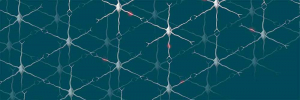The use of secondary raw materials to replace natural materials is becoming a necessity and a crucial challenge for the industrial, political and scientific spheres. Understanding and controlling the interaction of new resources (secondary raw materials) with their host environments, taking into account environmental, biological, geotechnical, mechanical and economic parameters are the keys for designing eco-materials and future works based on secondary raw materials through the development of systems to recover and reuse these materials.
How can we address the imbalances between human needs for natural resources and their availability ?
Transportation in all its forms is a major challenge for the years ahead as it must adapt to the problems such as traffic, use of the city, new uses and ecology. Digital technology and electronics provide an ever-growing amount of data and change the way we think about and use transportation. This raises questions about how public transportation will evolve (autonomous or shared vehicles etc.) in light of smart transportation, demand management systems (including energy demand) and the impact of autonomous vehicles.

IMT
IMT is a public institution dedicated to higher education and research for innovation.
It is a key player in the fusion of science, engineering and digital technology, and takes its schools’ skills into the major fields of transformation in digital technology, industry, energy and the environment as well as their impact on the industry of the future, cities, health, and autonomy.
















